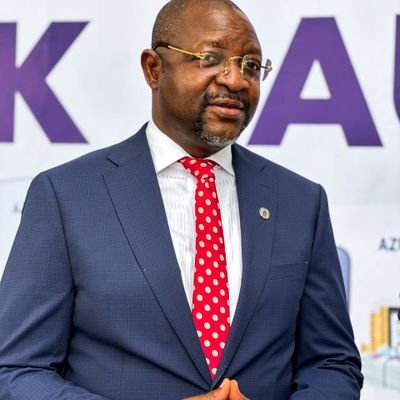In an exclusive interview at the PREMIUM TIMES office in Abuja, Sunday Dare, Special Adviser on Public Communication and Orientation to President Bola Tinubu, spoke about critical issues affecting Nigeria. From the controversy surrounding President Tinubu’s frequent foreign trips to his economic policies and tax reforms, Dare provided insights into the government’s plans for the country in the coming years.
When asked about the criticism of President Tinubu’s frequent foreign trips, Sunday Dare was quick to defend the president’s actions, stating that such criticisms were not new. He referenced past Nigerian presidents, such as Olusegun Obasanjo, who also faced similar criticism for their foreign travels. Dare pointed out that these trips are not frivolous; they are part of Nigeria’s diplomacy and essential for advancing the country’s interests abroad.
“Every administration has been dogged by this same perception of the president travelling too many times,” Dare said. “Recall that under Obasanjo, there was massive documentation of his trips. I remember Obasanjo’s response then: ‘I am the chief diplomat. I have to go and make pitches for this country.'”
He explained that some international meetings, like the UN General Assembly and the G20, are scheduled well in advance, and the presence of the Nigerian president at such events is crucial. According to Dare, the president’s trips are necessary to engage with other world leaders and promote Nigeria on the global stage.
“For Nigerians, the president is well known. But globally, he has only been president for 18 months. The world does not know him at the level of a president. So he needs to open doors and open windows,” Dare explained.
Dare also dismissed claims that the president’s new aircraft was a reason for the frequent travel. He compared the aircraft to a car, stating that it is simply a tool used to perform his duties as president.
“That aircraft belongs to the Federal Government of Nigeria,” Dare clarified. “It is being used to advance Nigeria’s interests.”
The discussion turned to the impact of President Tinubu’s trips, specifically his visit to the UAE. One major outcome was the resumption of Emirates flights to Nigeria. While some questioned the tangible benefits of the trip, Dare highlighted the significance of the airline’s return.
“Emirates is back. The Nigerian government cannot control the currency of sale of these airline tickets because it’s a free market,” Dare noted. “But I think that being able to broker that thing and bring Emirates back is major.”
He also pointed to the importance of diplomacy in securing international financial support for Nigeria, citing the president’s recent trip to Riyadh where negotiations were made for a potential $5 billion support package.
Addressing concerns about Nigeria’s increasing foreign loans, Dare defended the government’s borrowing strategy. He explained that loans, when used wisely, can support national development, pointing to the example of the UAE, where 92 percent of the funds used to build the country were borrowed.
“Dubai has been a highly functional society with investors and tourists coming in,” Dare said. “No nation has been able to repay its loan as fast as the UAE. As we speak, they’ve repaid about 68 percent of the loan they took.”
However, Dare was quick to clarify that Nigeria is not one of the world’s most indebted nations. He stressed that any loans taken by the government would be scrutinised and defended in the National Assembly before being approved.
“We can’t do the work of the National Assembly,” Dare remarked. “If they justifiably approved it, that means it is necessary.”
On the topic of Nigeria’s foreign representation, Dare addressed the delay in appointing ambassadors. He explained that while this decision has taken longer than expected, it does not mean that the country’s foreign missions have come to a halt. He assured that the president is making careful choices to ensure that appointed ambassadors have the right credentials to serve Nigeria’s interests abroad.
“The president has been deliberate because he understands that the ambassadors will play a key role in his plan to bring Foreign Direct Investment (FDI) into our country,” Dare explained. “We’re going to see that happen shortly.”

